Necessity is the mother of invention.
Except you’re a foodie.
Then invention becomes necessary.
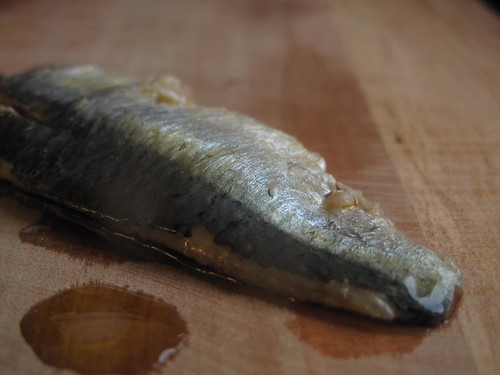 Be honest – bacon jam, salted caramels, tomato lassi? Food to save the world? I guess not. Delicious, creative, inventive, pure genius? Definitely.
Be honest – bacon jam, salted caramels, tomato lassi? Food to save the world? I guess not. Delicious, creative, inventive, pure genius? Definitely.
Take me for instance – I’m partial to ‘vintage’ food packaging so much so that I’ll often buy things just because I like the look. Like when we went to Barcelona last fall and I went on a funny spree, buying ‘period’/dated looking food packets. From baking powder to anchovies, sardines and stock cubes. I was drawn to the simplicity of design.
All these I saved it, planning on using them sometime in the future, till my husband requested the tin of sardines, hence their absence from the photo below.
I didn’t dare say a word to the lover of sardines. Somehow I didn’t think my ‘I’m saving it not really to eat…but to take some nice photos in 2 months’ would meet with approval. And so I let it go and have nothing to show you in its place that’s packaged.
Instead, while searching for pizzas in the deep freezer one Saturday night dinner, I happened upon 600 odd grams of freshly purchased, now frozen Italian sardines….and thought to myself, how about making my very own sarde con olio?
Necessity.
Gives birth.
To invention.
When I get a new idea….I often think of it as a kind of birthing. First a tiny seed takes root and before you know it, it’s walking, living, breathing and even occasionally shouting back at you, forgetting from whence it came.
And so it was with this.
First I thought of sardines and their softness in oil and what came to mind was duck confit.
And then I knew that the rest was history but still I touched base with Google, just to make sure.
With pointers from Seamus Mullen, I was home and hosed.
If you like sardines, this will please you to no end – this recipe recreates the tinned, fishy, shiny-skinned pisces you are used to.
Now if you are ambivalent about sardines, this recipe will do nothing to change your mind. Go home now.
And for those standing smack in the middle of the road, you’ll have to give it a try and see how it goes. You might get a whiff of adventure.
The beauty of these sardines were that they looked and tasted almost exactly like their canned/tinned brethren. Can I get an amen? For some reason I am fascinated with recreating the texture of preserved foods – dried mangoes anyone?
Chef’s Best describes my sardines, as well as theirs:
Hailed as a “superfood” for their nutritional punch, sardines are high in protein, iron and omega-3 fatty acids. They also get rave reviews for being an affordable food that can be found in most grocery stores. Serve them with cheese and crackers at your next picnic or include them in salads, pasta sauces and your favorite sandwiches.
Skin colour: Our chefs define high-quality canned sardines in oil as having a bright skin color with some iridescent silver shining through.
Texture: The interior flesh should be fleshy white as opposed to brown or gray. Sardines should have high structural integrity, meaning the fish should be intact and whole, not broken or smashed.
Taste: The moderate aroma will have a complex character that delivers fresh fish, seawater, smoky and briny notes. The aroma should not be simple with muddy or old fish notes. There should also be no aroma off notes, including metallic notes.
High-quality canned sardines should have a tender and easily chewed texture that is not tough or full of hard bones. Canned sardines must be moist, although not as moist as poached fish, and the moderately long aftertaste shouldn’t result in a long, fishy finish that lingers on the palate.
Now while no judge judged mine….save for me and the husband, I still am thrilled – I’m an inventor.
But only out of necessity.
Tips
If you want to infuse the fish with any flavours – herbs or spices, add the flavourings to the sugar-salt cure mixture.
Olive oil poached sardines
Ingredients
Fresh sardines fillets or whole sardines, rinsed, scaled and filleted. Caster sugar Coarse sea salt Olive oil (or sunflower oil)How To
If using whole sardines, fillet them.
First remove the head and then gently cut down the belly side, lengthways. Gently remove the guts as sardines are tender fish.
Spread open, skin side down. Then place your finger under the central bone and gently pull it up and remove. Using tweezers, remove some of the other larger bones. Cut each fish in half to form fillets and then you’re done.
Cure the fillets in a 50/50 mixture of coarse sea salt and caster sugar for 15 minutes. After a quarter of an hour, rinse well and pat dry.
Just like cured salmon, the flesh will firm up a bit and release some of its juices.
Heat oil to 60°C (120°F) and hold at that temperature. Slip in sardine fillets and confit for 3 minutes until just cooked through.
Put fish into a clean, lidded jar or weck pot and top up in oil.
Can be refrigerated for up a few weeks.
Tester notes – sardines have been used in a recipe…..with success! More on that soon X X X
I’d also like to ask, if you like…..to nominate Kitchen Butterfly in the Saveur Best Food Blog Awards, open until Friday the 22nd of April.
I know I am canvasing votes but I’d love my blog to be nominated in the Best Culinary Essay category. Thank you…very, very much in advance! Lots of love and have a superb Easter!



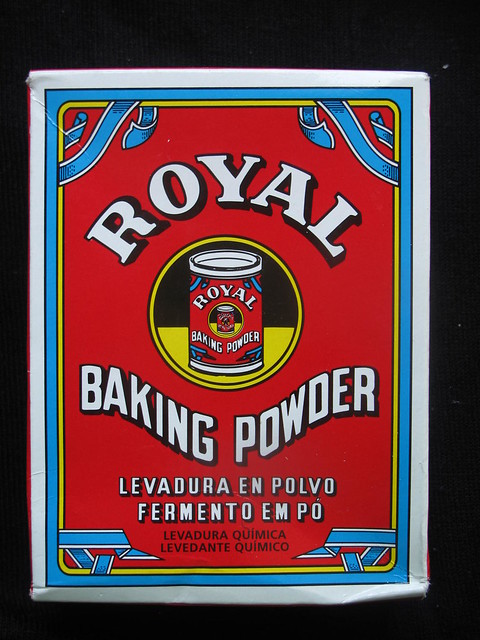
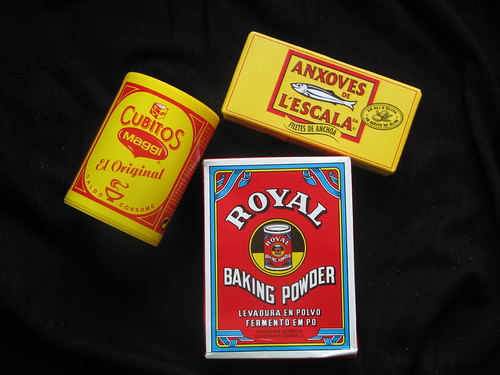
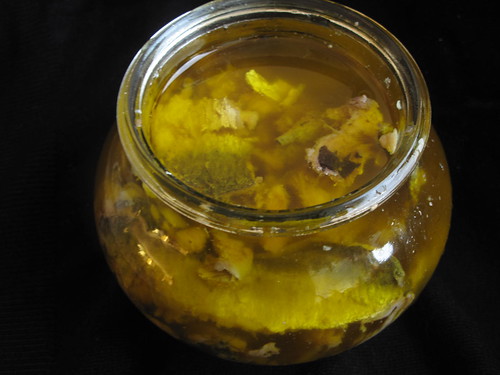
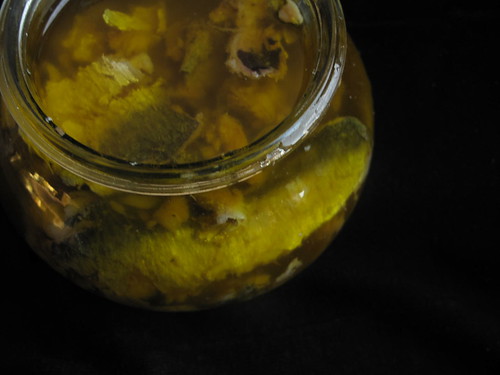
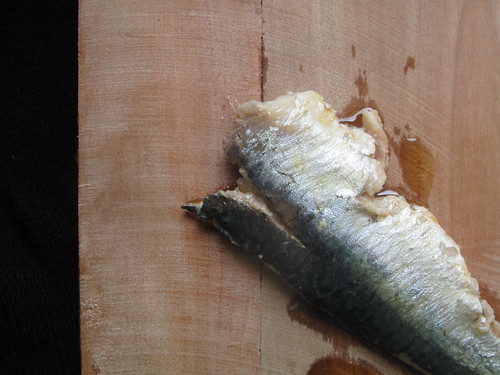
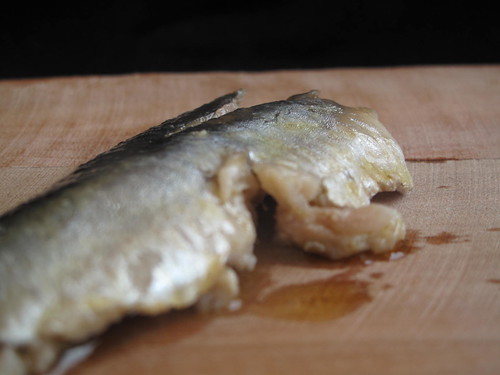
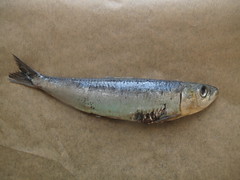
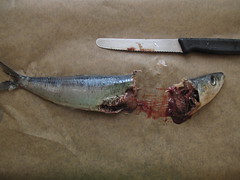
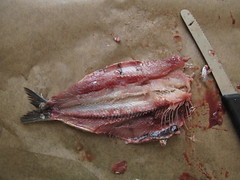
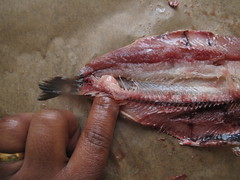
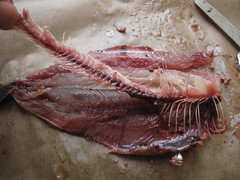
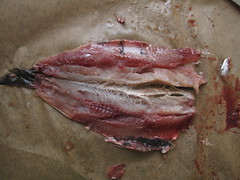
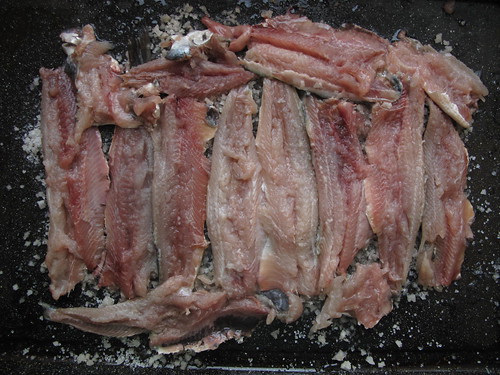
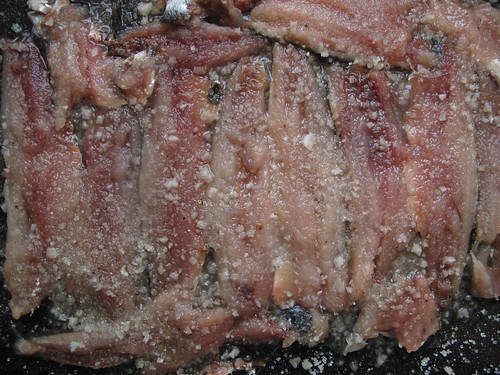
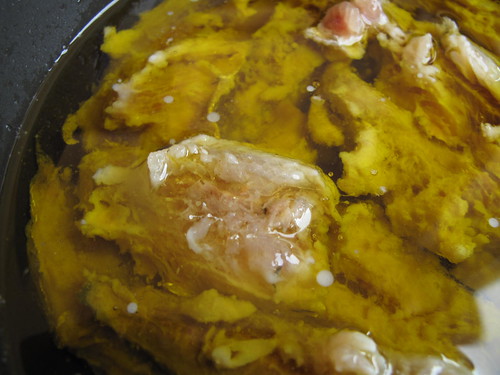
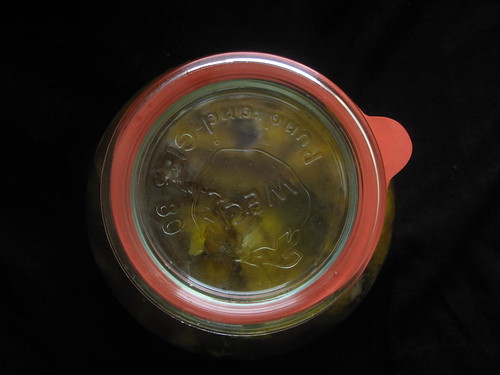
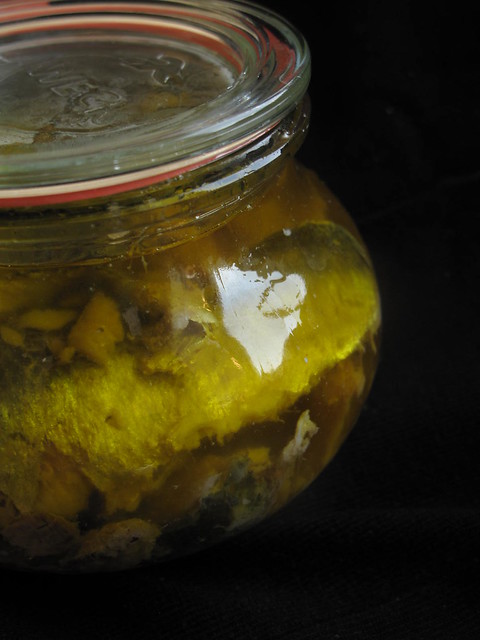
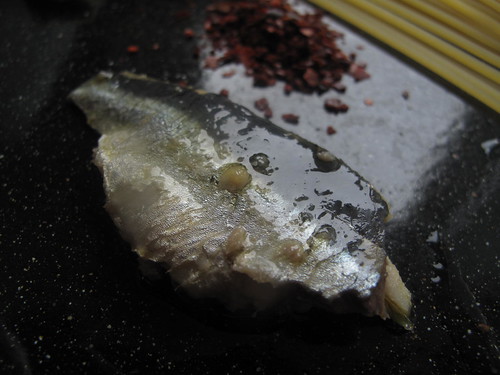
Leave a Reply